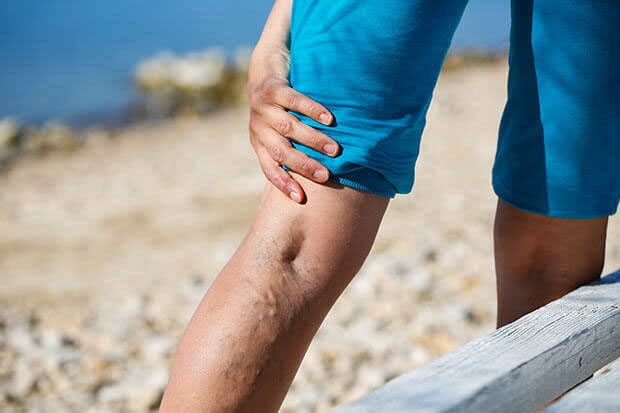Hello guys, i will keep this very short although it is a bit of a complicated case.
I have grade 2 varicoceles on left and right side. It is painless and never caused any problems thus far. However, the reason why they occured is probably due to my Post Accutane Syndrome. I have pelvic floor, prostate and lack of bloodflow to genital area issues.
The reason is unknown currently, it can be a silent a very rare type of hernia pressing on nerves on my spine or auto immune reaction inside my gut after taking Accutane. I have methane dominant SIBO and probably leaky gut. These issues can affect the pelvic floor and prostate. Those are connected. Which one is causing which, not sure, but there is a domino effect happening there.
I heard once, from a guy who had same exact sexual symptoms and he was a Post Finasteride Syndrome case, this guy had windows of complete recovery and eventually recovered from the disease. We talked on Whatsapp. This guy claims that, his similar varicoceles on his scrotum DISAPPEARED on their own once he recovered from the root cause. He swears that they went away on its own and that he claims he feels completely recovered from genital numbness and lack of bloodflow to that area. (My main symptoms.)
I also have read a post HERE, in this forum, where a guy claimed that once he fixed his Pelvic Floor problems, his varicose veins finally could ''breathe'' again and that they recovered and went away!
My theory is that, maybe my VALVES inside my veins are not genetically, inherently damaged or corrupted like the most cases, rather they are just malfunctioning due to pressure and compression on my vein network. If i fix the root cause of compression on my veins, can my valves recover on their own once the root problem is found; and function normal after years of suffering? Or i will def. need to get the surgery done?
On other cases, there are genetic factors and other things causing varicocele on people. But in my case, i strongly believe if i never took Accutane, i would never get varicoceles at this early age of 25. (I have them since 18 or so i think.)
I think i would get them as my father also has it, but at the age of 40, not 18. I think Accutane caused an early effect for them to appear. And the reason for it is the tight Pelvic Floor, squeezing my veins there. So if i fix my root issue and eliminate the domino effect that is causing the tightness inside my pelvic floor, can my valves reverse back to functioning normally and can i heal from it without surgery?
Thanks, happy new years.
I have grade 2 varicoceles on left and right side. It is painless and never caused any problems thus far. However, the reason why they occured is probably due to my Post Accutane Syndrome. I have pelvic floor, prostate and lack of bloodflow to genital area issues.
The reason is unknown currently, it can be a silent a very rare type of hernia pressing on nerves on my spine or auto immune reaction inside my gut after taking Accutane. I have methane dominant SIBO and probably leaky gut. These issues can affect the pelvic floor and prostate. Those are connected. Which one is causing which, not sure, but there is a domino effect happening there.
I heard once, from a guy who had same exact sexual symptoms and he was a Post Finasteride Syndrome case, this guy had windows of complete recovery and eventually recovered from the disease. We talked on Whatsapp. This guy claims that, his similar varicoceles on his scrotum DISAPPEARED on their own once he recovered from the root cause. He swears that they went away on its own and that he claims he feels completely recovered from genital numbness and lack of bloodflow to that area. (My main symptoms.)
I also have read a post HERE, in this forum, where a guy claimed that once he fixed his Pelvic Floor problems, his varicose veins finally could ''breathe'' again and that they recovered and went away!
My theory is that, maybe my VALVES inside my veins are not genetically, inherently damaged or corrupted like the most cases, rather they are just malfunctioning due to pressure and compression on my vein network. If i fix the root cause of compression on my veins, can my valves recover on their own once the root problem is found; and function normal after years of suffering? Or i will def. need to get the surgery done?
On other cases, there are genetic factors and other things causing varicocele on people. But in my case, i strongly believe if i never took Accutane, i would never get varicoceles at this early age of 25. (I have them since 18 or so i think.)
I think i would get them as my father also has it, but at the age of 40, not 18. I think Accutane caused an early effect for them to appear. And the reason for it is the tight Pelvic Floor, squeezing my veins there. So if i fix my root issue and eliminate the domino effect that is causing the tightness inside my pelvic floor, can my valves reverse back to functioning normally and can i heal from it without surgery?
Thanks, happy new years.



